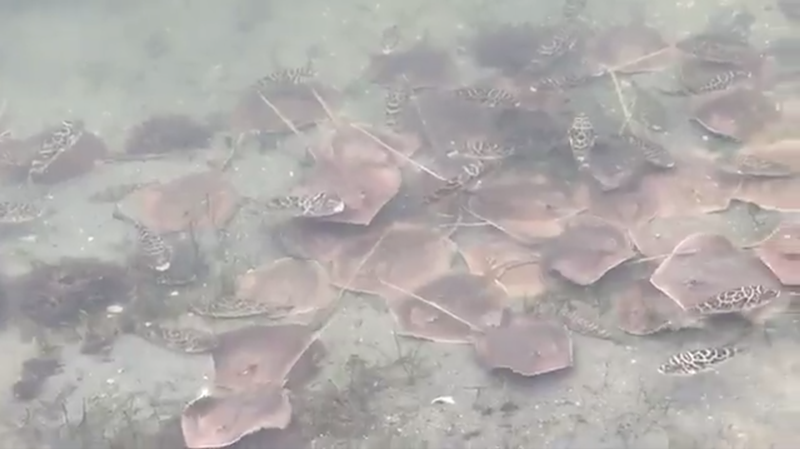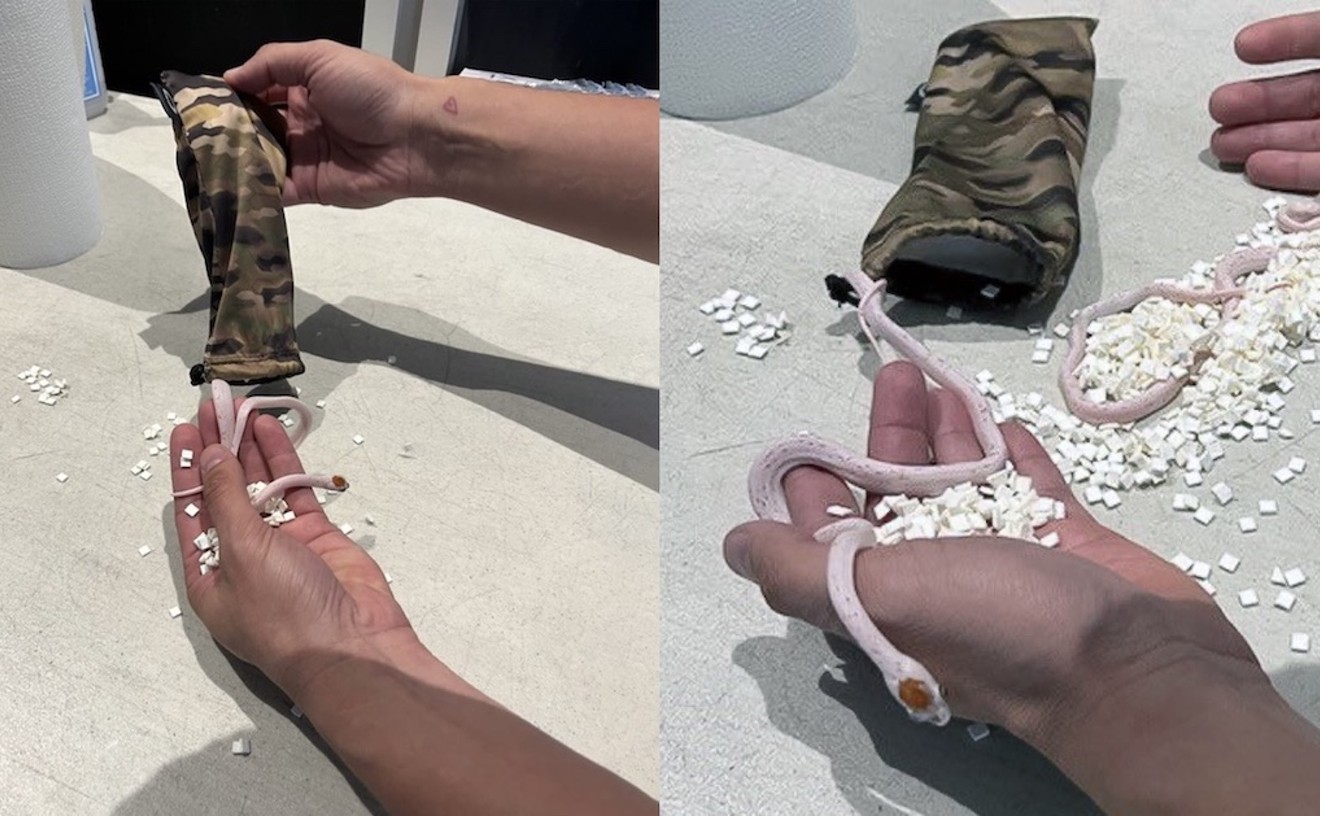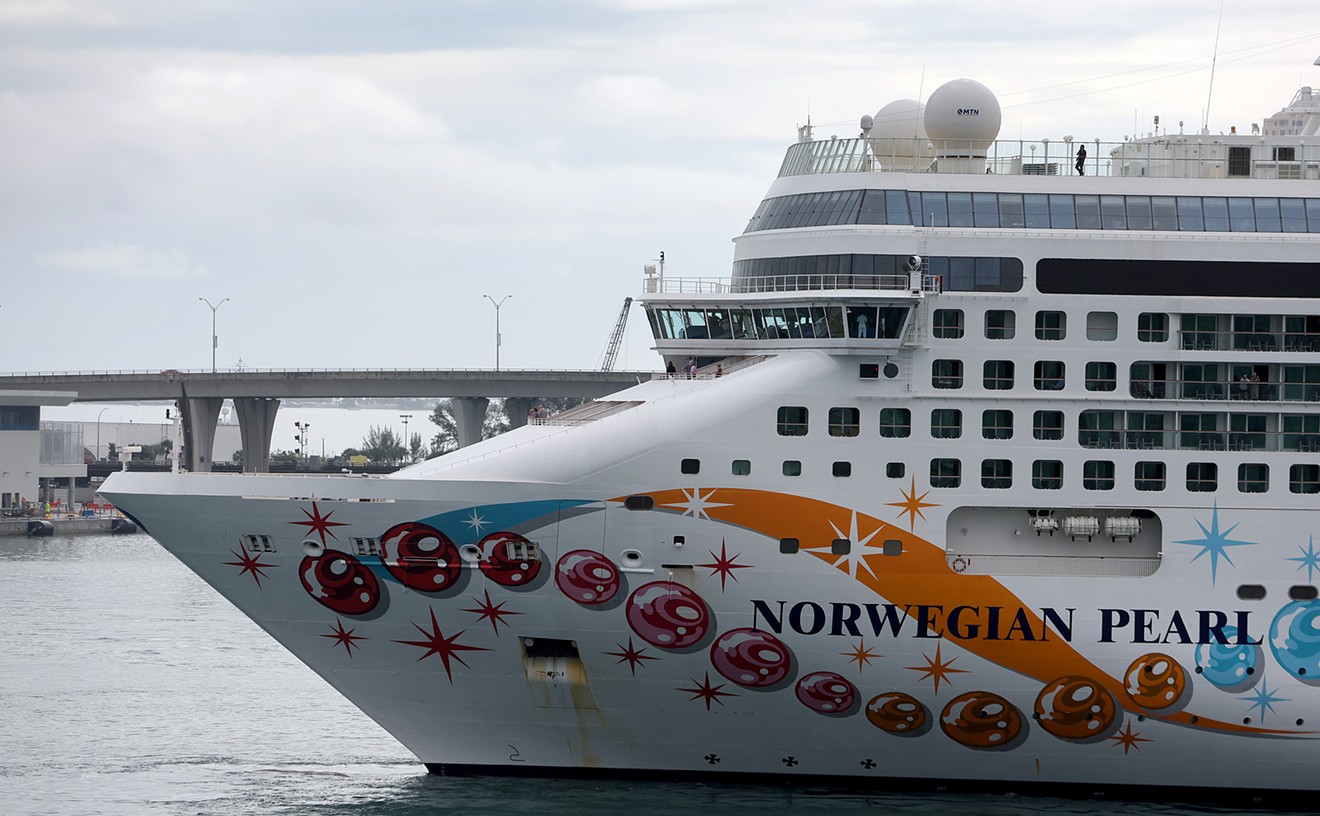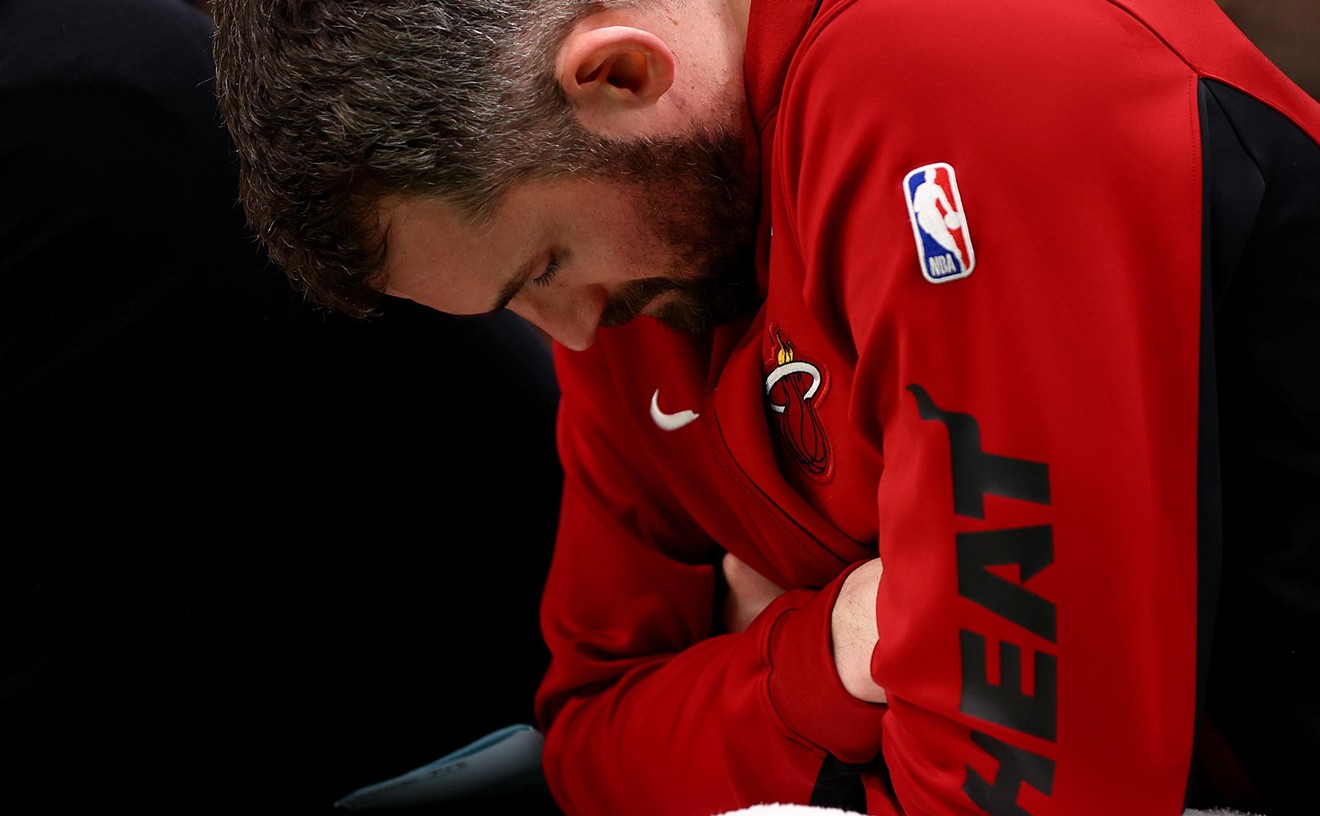Posted by Pelican Harbor Seabird Station on Wednesday, August 12, 2020
Update, August 13: Tests reveal that water samples from Biscayne Bay have normal levels of chlorophyll, meaning there's no evidence of algae blooms at this time, according to Miami Waterkeeper. But the samples have low levels of dissolved oxygen, creating an environment where hydrogen sulfide gas can invade the cells of plants and animals. Miami Waterkeeper says the lack of oxygen in the water is likely because of the ongoing seagrass die-off in the bay.
Conservationist Christopher Boykin awoke yesterday to news that thousands of fish were dying in Biscayne Bay. Not long after he arrived at work, Boykin, the executive director of the Pelican Harbor Seabird Station in Miami, witnessed firsthand what was happening. Outside the nonprofit's building on the 79th Street Causeway, dozens of stingrays, pufferfish, eels, and sea robins were clustered in the water near the shore.
Boykin began livestreaming the scene on the organization's Facebook page.
"The die-off in Biscayne Bay right now is really sad," he says in the video. Then Boykin addresses the audible gasping of nearby checkered puffers: "To have this many, this volume of fish looking for oxygen — they're almost air-gulping over there, all of those guys. It's really kind of crazy and we're very disturbed, as are all the residents along Biscayne Bay that are seeing this volume of death."
State and county officials began taking water samples and investigating Monday after thousands of dead fish surfaced in Biscayne Bay between the Venetian and Julia Tuttle causeways.
While the precise cause is still unknown, Tere Florin, a spokesperson for the Miami-Dade Department of Environmental Resources Management (DERM), says inspectors found extremely low levels of dissolved oxygen, which plants and marine animals need to survive. Florin says the warm water temperature — measured at 90 degrees Monday — is "likely contributing to or driving the situation."
DERM is continuing to monitor the water conditions and hopes the data will provide more clarity.
Miami Waterkeeper executive director Rachel Silverstein suspects the lack of oxygen could be compounded by algae blooms caused by nutrient pollution. As of yesterday, Miami Waterkeeper was still waiting on test results to see if algae toxins are present in the water samples it sent to the Florida Fish and Wildlife Conservation Commission.
Silverstein says Boykin's video shows the fish and other creatures in Biscayne Bay are having a hard time breathing. Her organization is exploring ways to pump oxygen into the water near large clusters of marine life as a short-term, Band-Aid-type fix.Today, Pelican Harbor Seabird Station reported an aggregation of rays nearshore. Scientists believe that this aggregation may be due to low oxygen levels in the water, making it hard for the rays to breathe.
— Miami Waterkeeper (@MiamiWaterkpr) August 12, 2020
"If you're at a point where you're doing that, things are really bad," she tells New Times. "It's not going to be something you could deploy across the whole bay."
As more animals die, the situation could become even worse. Silverstein says dead fish attract bacteria, which can cause algae blooms to grow, sucking additional oxygen out of the water.
According to Florin, there's no designated agency for fish cleanup on the open water. If the dead fish wash ashore, it would become the property owner's responsibility, she says. Miami-Dade County is working with the City of Miami to coordinate cleanup near Morningside Park, where a large cluster of dead fish was found Monday.
Boykin believes the area outside the Pelican Harbor Seabird Station is attracting sea creatures because of the nearby mangroves and the breaking of the water on the shoreline.
"That churning of the water can create additional oxygen," he says. "They were looking for oxygen, absolutely."
He hopes this week's events will remind Miamians of the importance of conservation.
"I think we all as humans need to slow down and take care of our backyard," Boykin says. "We need to give back to this world what we've taken, like The Giving Tree. We need to take care of our waterway, our Biscayne Bay."
Until the situation improves, Silverstein is asking residents to let Miami Waterkeeper know of any large clusters of fish so the organization can attempt to provide relief by pumping extra oxygen into the area. The team is monitoring emails sent to [email protected].












